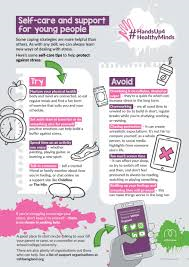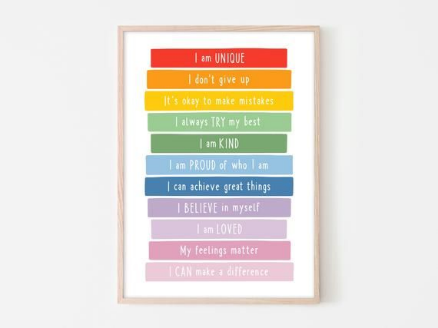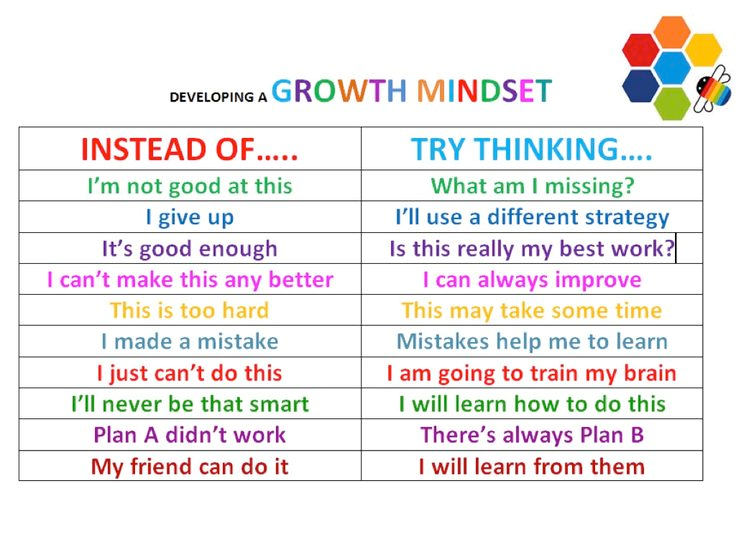Mental Health & Well-being
Mental health problems affect about 1 in 10 children and young people. They include depression, anxiety and conduct disorder, and are often a direct response to what is happening in their lives. Alarmingly, however, 70% of children and young people who experience a mental health problem have not had appropriate interventions at a sufficiently early age.
The emotional wellbeing of children is just as important as their physical health. Good mental health allows children and young people to develop the resilience to cope with whatever life throws at them and grow into well-rounded, healthy adults.
Things that can help keep children and young people mentally well include:
- being in good physical health, eating a balanced diet and getting regular exercise
- having time and the freedom to play, indoors and outdoors
- being part of a family that gets along well most of the time
- going to a school that looks after the wellbeing of all its pupils
- taking part in local activities for young people.
Other factors are also important, including:
- feeling loved, trusted, understood, valued and safe
- being interested in life and having opportunities to enjoy themselves
- being hopeful and optimistic
- being able to learn and having opportunities to succeed
- accepting who they are and recognising what they are good at
- having a sense of belonging in their family, school and community
- feeling they have some control over their own life
- having the strength to cope when something is wrong (resilience) and the ability to solve problems.
Most children grow up mentally healthy, but surveys suggest that more children and young people have problems with their mental health today than 30 years ago. That’s probably because of changes in the way we live now and how that affects the experience of growing up.
Dealing with change
Changes and significant life events can trigger problems for children and young people who are already vulnerable.
Changes often act as triggers: moving home or school or the birth of a new brother or sister, for example. Some children who start school feel excited about making new friends and doing new activities, but there may also be some who feel anxious about entering a new environment.
Teenagers often experience emotional turmoil as their minds and bodies develop. An important part of growing up is working out and accepting who you are. Some young people find it hard to make this transition to adulthood and may experiment with alcohol, drugs or other substances that can affect mental health.
Risk factors
There are certain risk factors that make some children and young people more likely to experience problems than other children, but they don’t necessarily mean difficulties are bound to come up or are even probable.
Some of these factors include:
- having a long-term physical illness
- having a parent who has had mental health problems, problems with alcohol or has been in trouble with the law
- experiencing the death of someone close to them
- having parents who separate or divorce
- having been severely bullied or physically or sexually abused
- living in poverty or being homeless
- experiencing discrimination, perhaps because of their race, sexuality or religion
- acting as a carer for a relative, taking on adult responsibilities
- having long-standing educational difficulties.
Which mental health problems occur more commonly in children?
These are some of the mental health problems that can affect children and young people.
- Depression affects more children and young people today than in the last few decades, but it is still more common in adults. Teenagers are more likely to experience depression than young children.
- Self-harm is a very common problem among young people. Some people find it helps them manage intense emotional pain if they harm themselves, through cutting or burning, for example. They may not wish to take their own life.
- Generalised anxiety disorder (GAD) can cause young people to become extremely worried. Very young children or children starting or moving school may have separation anxiety.
- Post-traumatic stress disorder (PTSD) can follow physical or sexual abuse, witnessing something extremely frightening of traumatising, being the victim of violence or severe bullying or surviving a disaster.
- Children who are consistently overactive (‘hyperactive’), behave impulsively and have difficulty paying attention may have attention deficit hyperactivity disorder (ADHD). Many more boys than girls are affected, but the cause of ADHD aren’t fully understood.
- Eating disorders usually start in the teenage years and are more common in girls than boys. The number of young people who develop an eating disorder is small, but eating disorders such as anorexia nervosa and bulimia nervosa can have serious consequences for their physical health and development.
What help is available?
Parental help
If they have a warm, open relationship with their parents, children will usually feel able to tell them if they are troubled. One of the most important ways parents can help is to listen to them and take their feelings seriously. They may want a hug, they may want you to help them change something or they may want practical help.
Children and young people’s negative feelings usually pass. However, it’s a good idea to get help if your child is distressed for a long time, if their negative feelings are stopping them from getting on with their lives, if their distress is disrupting family life or if they are repeatedly behaving in ways you would not expect at their age.
Professional help
If your child is having problems at school, a teacher, school nurse, school counsellor or educational psychologist may be able to help. Otherwise, we advise that you go to your GP or speak to a health visitor. All these professionals, including school, are able to refer a child for further help. Different professionals often work together in Child and Adolescent Mental Health Services (CAMHS).
Most support for troubled children and young people is provided free by the NHS, your child’s school or your local council’s social services department.
Talking it through
Assessments and treatments for children and young people with mental health problems put a lot of emphasis on talking and on understanding the problem in order to work out the best way to tackle it. For young children, this may be done through play.
Most of the time, the action that professionals recommend is not complex. It often involves the rest of the family. Your child may be referred to a specialist who is trained to help them explore their feelings and behaviour. This kind of treatment is called a talking therapy, psychological therapy or counselling.
Medication
Most research into medications for mental health problems has focused on adults, rather than children. Children and young people need to be assessed by a specialist before they are prescribed any drugs. There is a lot of evidence that talking therapies can be effective for children and young people, but drugs may be also help in some cases.
Confidentiality
The professionals supporting your child will keep information about them and your family confidential. Young people can seek help on their own, either by ringing a helpline or by approaching a professional directly, but your consent is usually needed for them to get medical care if they are under 16.
Young people have a right to privacy if they do not want to talk to you about their conversations with professionals, but you should still respond sensitively if they seem to be upset.
Organisations that can help:
- ChildLine (www.childline.org.uk)
- YoungMinds (www.youngminds.org.uk)
- Contact a Family (www.contact.org.uk)
- Family Lives (www.familylives.org.uk)
- Barnardo’s (www.barnardos.org.uk)
- Kidscape (www.kidscape.org.uk)
- CALM (Campaign Against Living Miserably) (www.thecalmzone.net)
- PAPYRUS (Prevention of Young Suicide) (www.papyrus-uk.org)
- Children and Young People’s Mental Health Coalition (www.cypmhc.org.uk)
At The Heys School, we recognise how important it is to talk about our mental health and to do. We have a full-time school counsellor who works 1-to-1 with pupils in need of additional support. She also runs a selection of group sessions to address areas that pupils have identified themselves as requiring support with such as anxiety, stress and resilience. Staff, pupils and parents can refer to the school counsellor and will be added to her case load based on need.
We also have several members of staff who are trained as mental health first aiders, accredited through MHFA England. Please contact school for more information if needed. If needed, pupils at the Heys School can ask to see a mental health first aider during the day and will be given one-to-one support to address any issues they are experiencing.
We really like these helpful “How to…” guides on a range of issues that relate to mental health. These have been published by the Mental Health Foundation and offer lots of advice and guidance for parents and young people.
Emotional Literacy
Children and young people sometimes lack the emotional literacy to explain how they feel which can lead them to make statements about wanting to hurt themselves that they might not really mean.
MeMotional from Early Break is a great website that helps children and young people to explore their feelings and give them words to help them explain how they feel. It also makes recommendations for how they can help themselves if they are experiencing certain feelings.
Visit www.memotional.co.uk for more information
Self- help & Self-care
Looking after your own physical and emotional well-being is vital. There are lots of ways in which you can do this, here are our top ten tips that young people, parents / carers and professionals all agree can make a real difference:
- Food and mood Changes in blood sugar levels are linked to changes in mood and energy. Eating regularly maintains blood sugar levels. Not eating regularly can make you tired, irritable, anxious and cause poor concentration. Good tips include eating breakfast, eating every 3-4 hours, avoiding junk foods, eating plenty of fruit and veg and drinking lots of water.
- Keep active Physical activity helps release endorphins which can improve your mood. When you feel low in mood you might stop doing the things that can improve your mood, almost without realising it. Making sure you do some physical exercise, even if you don’t feel like it at first, can give you quick results in improving your mood
- Drink sensibly It is important to stay hydrated by drinking plenty of water throughout the day.
- Express yourself Some people like to read to learn about the world or escape into other worlds. Some people like to express their feelings through art, some like talking things through with others. Whatever your style, make sure you do express yourself – it will help you to stay connected, to discover more about you, your identity, and the person that you want to become.
- Distract yourself When you are feeling immersed in a problem, let yourself switch off from it and go and do something completely different. When you return to it at a different time it may seem more manageable. Distracting yourself is not a cop-out, but can be a reliable way to stop overthinking a problem when you are feeling stuck
- Ask for help How would you feel if a friend asked for help, advice or just wanted to talk things through? Many of us would be pleased to be chosen to confide in, it might make us feel valued. When you are feeling low in mood, or anxious, it is easy to think negatively about yourself and be less likely to seek support from others. Try and beat this feeling and approach people that you trust to talk to. You may be surprised at how much better you might feel and how they have responded positively to you, as you would if the situation were reversed.
- Learn to take time out and relax People have lots of different ways of relaxing or having downtime from the stresses of life. These can be the things that you stop doing when you start to feel low in mood, or stressed, as you forget to be kind to yourself. A hot bath, listening to music, watching a film, keeping social arrangements and hobbies going, whatever it is, think about the things that help to keep you calm or more content, and make sure they are still in your routine.
- Do something you enjoy We are all unique and enjoy different things. You may not have found the thing that you enjoy yet, so try some different things out. You may have lost touch with activities that have given you pleasure in the past. Doing things you enjoy can help you to stay connected with some of the more positive aspects of life.
- Remember your good points We all have them, and none of us is perfect either. It can be easy to think that others are more talented, more successful, have more opportunity than us, when you are feeling low in mood. But it is impossible to know how someone else is feeling inside, whatever they seem like on the surface. Remind yourself about the things you do well and looking for evidence of this can help to balance out critical thoughts about yourself, which tend to increase when we are stressed.
- Self-help Use online resources and books that offer help and support, information and advice, or just give another perspective. Some people like books with information, some people like reading about other people’s experiences. Some people like novels with a particular theme. Some people prefer films.
Here are our recommendations for apps and websites that offer some great strategies for self-help and self-care:

The Anna Freud Centre for Children and Families provides the “On My Mind” site with masses of self-help ideas that you can try.

The Pzizz app helps you quickly calm your mind, fall asleep fast, stay asleep, and wake up refreshed.

Learn to relax, manage your worries and improve your wellbeing with Chill Panda. The app measures your heart rate and suggests tasks to suit your state of mind. Tasks include simple breathing techniques and light exercises to take your mind off your worries.

Calm Harm is an app designed to help people resist or manage the urge to self-harm. It is private and password protected.

BlueIce is an evidenced-based app to help young people manage their emotions and reduce urges t o self-harm, providing a mood diary and automatic routing to emergency numbers if urges to harm continue.

DreamyKid meditation app offers meditation, guided visualization and affirmations curated just for children & teens. It uses proven techniques that teach your kids methods to guide them towards a happier life through mindfulness.
CAMHS (Children and Adolescents Mental Health Services) also recommend this collection of apps that are designed to support young people, adults and families with their mental health and well-being.
Building resilience
Resilience helps young people gain skills for life that help them deal with and manage challenging situations and circumstances that are unfortunately unavoidable in life. These can include managing unexpected change, going through transitions and dealing with the daily hassles and stresses of life which will vary from child to child.
There are lots of resources available that will help your child to become more resilient.

SuperBetter builds resilience – the ability to stay strong, motivated and optimistic even in the face of change and difficult challenges. Playing SuperBetter unlocks heroic potential to overcome tough situations and achieve the goals that matter the most.

Feeling Good Teens has been developed for the educational project, Positive Mental Training (PosMT) for schools, to develop self-esteem, resilience and goal focused motivation in young adults. For more information visit: http://www.foundationforpositivementalhealth.com/for-schools).
We also really like this Challenge Journal for Resilience which you can download and fill in:

Positive mindset and self-belief
Studies show that positive thinking can also help towards decreased stress levels, fewer incidences of depression, a longer lifespan, improved coping skills, less risk of heart-related death — and a better sense of overall well-being. That said, it can be far easier to see the negatives in difficult situations so positive thinking is something that has to be worked at for most people.
This article from Employment UK explains the importance of having a positive attitude and gives some ideas about how this can be achieved.
https://www.youthemployment.org.uk/young-prof-article/positive-attitude-self-belief/

We love this graphic which shows how you can re-frame negative thoughts when you come across challenges and difficulties. There is always a more positive way of looking at things you find difficult and developing a growth mindset is the best place to start. The most important thing is to never give up!
